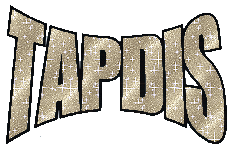
Simples rules friends:
1) Train 1-1.5 hours after you eat.
2) Fasted Cardio is said to be the most effective with the MAJORITY of people. When waking up your body is really anabolic which is a good thing. It wants to burn fat. Let it?
Solution: take 30-40G of whey with black coffee before a Nice moderatly paced walk (55-65% Heartrate max) OR for best results 10-20G of BCAA's. That will keep you anabolic and your body will burn fat and ONLY fat.
The biggest mistake people do when doing cardio is high intensity when they aren't fueled for it. That is highly Catabolic.
EDIT: that long article actually says waht I just said as well 
Last edited by Darkane; 08-25-2007 at 12:33 PM.
"The most merciful thing in the world, I think, is the inability of the human mind to correlate all its contents... some day the piecing together of dissociated knowledge will open up such terrifying vistas of reality, and of our frightful position therein, that we shall either go mad from the revelation or flee from the light into the peace and safety of a new Dark Age."
-H.P. Lovecraft




 Quote
Quote



 ). But that looks good.
). But that looks good.


